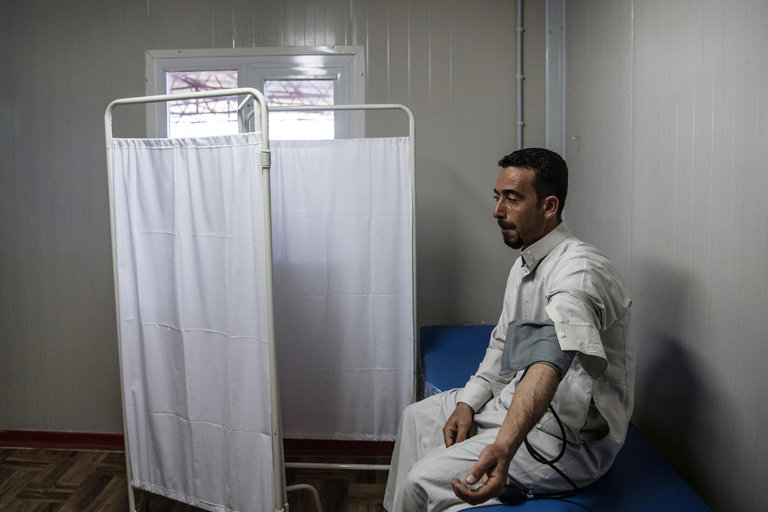Military planes have been flying low over our hospital. I have been working in Hamam al-Alil, about 15 miles from Mosul, at a Doctors Without Borders trauma hospital.
The roar of the military planes triggers painful flashbacks for one of our patients, Hamza, a 10-year-old boy from a Mosul neighborhood that had been controlled by ISIS from 2014 until very recently, when the coalition forces retook most of the city. In May, he watched his father burn alive in an airstrike over their neighborhood. Hamza’s legs were badly injured.
After initial treatment at the only hospital in the ISIS-controlled section of the city, Hamza’s mother, desperate to save her son, navigated her way out, moving the injured Hamza from one house to another until they were able to cross into an area of town controlled by the Iraqi forces, who helped transport Hamza to our hospital in Hamam al-Alil.
Sadly, our hospital is filled with patients like Hamza. Three weeks ago, two young shepherds, 12- and 14-year-old brothers, were rushed into our emergency room after an ISIS sniper shot them both. While the younger one survived, his older brother, shot in the head, didn’t. For his grandfather, crumpled in grief, all we could provide was reassurance that he had died peacefully.
On a day of mass casualties in June following heavy fighting between ISIS and Iraqi forces, I saw a girl, who might have been 5 years old, standing quietly at the foot of a patient’s bed. Her parents and two sisters had died in the blast that day, so she had come with her aunt and her injured children. I saw her again the next morning. Her aunt matter-of-factly explained that the girl had cried for her family through the night.
Across the hospital, at bed after bed, I heard stories like these.
There are unknown thousands of residents still trapped in Mosul. People who have managed to escape describe a dire situation. They say that ISIS fighters, surrounded by the Iraqi forces, have been holding the population hostage and use them as human shields. Civilians have few options. Escape and risk ISIS snipers’ bullets, or stay and risk being accidentally hit by shells or mortars from the Iraqi forces.
As hardly any food can be sent to the Old City, those trapped there face the specter of starvation. Our patients say that all the animals have already been eaten. ISIS sells the little food that trickles in at exorbitant prices, reportedly charging up to $100 for a kilogram of sugar.
Parents here reported feeding their babies, tired of sucking on empty breasts, dirty ground water and “wheat powder” for months on end, explaining the severe cases of malnutrition we were seeing.
This week, a woman arrived at our hospital with her 9-month-old daughter. They lived in an area of Mosul that had been retaken by the Iraqi government forces a few days earlier. Severely malnourished, the girl weighed a mere 11 pounds — almost half of what she should. Having identified an acute need for treating severely malnourished babies, we were able to admit her to our inpatient feeding center.
The next day, a man arrived at our hospital with two of his little girls. One of them had severely infected wounds and required surgery. A mortar attack had killed one of his daughters and severely injured three other children. I was struck by how starved and severely malnourished they were. They had survived for months on old, dry bread and dirty water. Their bodies were reduced to bones and peppered with shrapnel that, from a distance, seemed like strange freckles painted on their legs.
When the fighting in Mosul stops, I fear what we might discover. I fear that day of respite might be too late for many men, women and children, too weak and too exhausted to survive.
The New York Times
